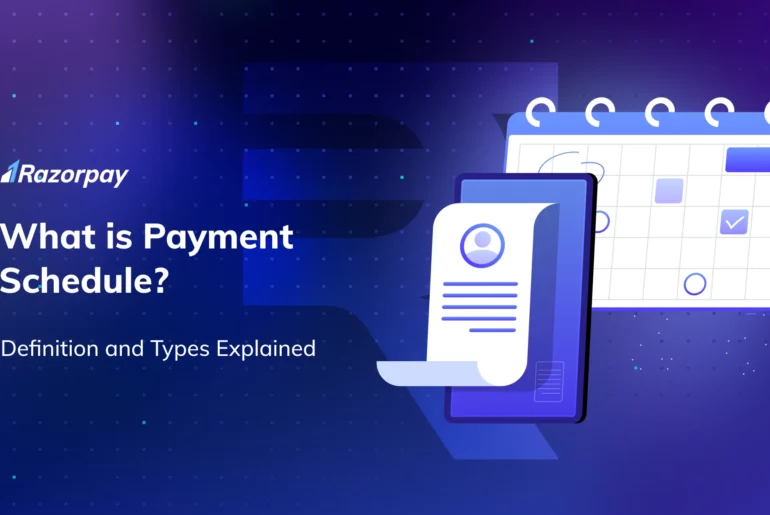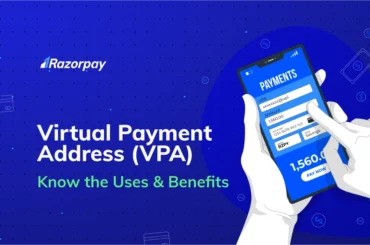Payment schedules are essential for business transactions as they ensure timely and structured monetary exchanges. They serve as roadmaps, outlining when and how payments occur, thus playing a pivotal role in financial agreements.
This article explores the significance and various types of payment schedules, including scheduled payouts and scheduled settlements, offering clarity in the complex landscape of financial arrangements.
Understanding payment schedules is crucial for fostering trust, transparency and successful business dealings.
Table of Contents
What is Payment Schedule?
A payment schedule is a predetermined plan between two parties outlining the timing, frequency and amount of payments. It includes essential details such as payment due dates, instalment amounts, any applicable interest rates, and additional fees or charges associated with the transactions. This ensures clear financial obligations.
Some common examples of payment schedules include financial agreements, contracts and loan repayment terms. It ensures that payments are made in an organised and structured manner.
What are the Types of Payment Schedules?
There are multiple payment schedule types, each designed to suit specific requirements. Let us discuss in detail below –
1. Lump Sum Payment Schedule
You pay the full amount at once. This is suitable for one-time expenses like buying a car or paying annual rent upfront.
2. Instalment Payment Schedule
Your total payment is split into equal portions over a set period of time. This type of schedule is common in monthly mortgages or consumer goods instalment plans.
3. Deferred Payment Schedule
Here, payments are pushed to a later date, often with added interest. Common examples include deferred student loans and credit card balances.
4. Fixed Payment Schedule
These are consistent, unchanging payments throughout the set period. They offer predictability for both parties involved.
5. Variable Payment Schedule
Here, payments fluctuate based on specific criteria, such as a percentage of sales or revenue sharing in business partnerships.
6. Milestone Payment Schedule
In this type of schedule, payments occur upon reaching project milestones. These are common across construction contracts or software development agreements.
7. Revolving Payment Schedule
It is usually associated with credit cards. It permits flexible payments, as long as the minimum required payment is met.
8. Parameterised Schedule
Parameterised schedules are adaptable payment plans that allow you to customise payment amounts and timing based on predefined criteria. They can be used in business partnerships where payments depend on revenue milestones, ensuring that payments align with specific conditions and needs.
For example, a construction project may have payments linked to completion stages, with larger sums being released upon reaching critical milestones like foundation, framing, and finishing.
9. Customised Schedule
A customised schedule is a uniquely tailored payment arrangement, specifically designed to accommodate individual needs and preferences. This flexibility allows parties involved to mutually agree on payment dates, amounts and intervals, thus ensuring that financial arrangements align with their specific requirements.
Customised schedules offer the freedom to negotiate terms, making them particularly advantageous for individuals with irregular income, such as small businesses and freelancers. Moreover, they can be easily adjusted to meet the distinctive demands of various projects, linking payments to project milestones or deliverables rather than rigid timeframes. This sets them apart from standard fixed schedules.
“Schedule settlements” and “instant settlements” are concepts closely related to payment schedules. They reflect the urgency and efficiency required in today’s fast-paced financial environments.
Read More About: What is Deferred Payment and How Does it Work?
The Impact and Significance of Payment Schedules
Payment schedules play a pivotal role in ensuring smooth transactions. They establish expectations for when and how payments are due, promoting adherence to contract terms. When parties follow the agreed-upon timeline, it reduces the risk of disputes or uncertainties about payment deadlines.
Payment schedules are vital tools in financial management, enhancing clarity and trust in transactions. Concepts like “instant settlements” and “payment links” further streamline and secure payment processes, making them integral to modern financial operations.
Conclusion
Payment schedules are the backbone of many business transactions. There are multiple types of payment schedules, each designed to suit specific needs and preferences.
Whether it’s a parameterised schedule for dynamic projects or a customised schedule tailored to unique requirements, these payment arrangements ensure financial clarity, transparency, and adherence to agreements.
Frequently Asked Questions (FAQs)
1. How do I make a payment schedule?
To craft a payment schedule, begin by identifying payment dates, amounts and preferred methods, ensuring alignment with any relevant contracts or agreements. Organisational tools like software, spreadsheets, or pre-made templates can assist in this process.
2. Why should you have a payment schedule?
Having a payment schedule ensures timely and organised payments, reducing the potential for disputes and aiding both parties in effective financial planning.
3. How does scheduling a payment work?
Scheduling payments entails establishing due dates and amounts, often based on specific milestones to fulfil contractual obligations or adhere to financial strategies.
4. What is the purpose of a payment schedule?
The primary purpose of a payment schedule is to outline clear payment expectations, promote financial transparency, and prevent misunderstandings between parties. This helps foster a smoother payment process.
5. What is included in a payment schedule?
A comprehensive payment schedule includes crucial elements such as payment dates, corresponding amounts, designated payment methods, any applicable penalties or incentives, and transparent terms and conditions. This provides a complete framework for financial transactions.



